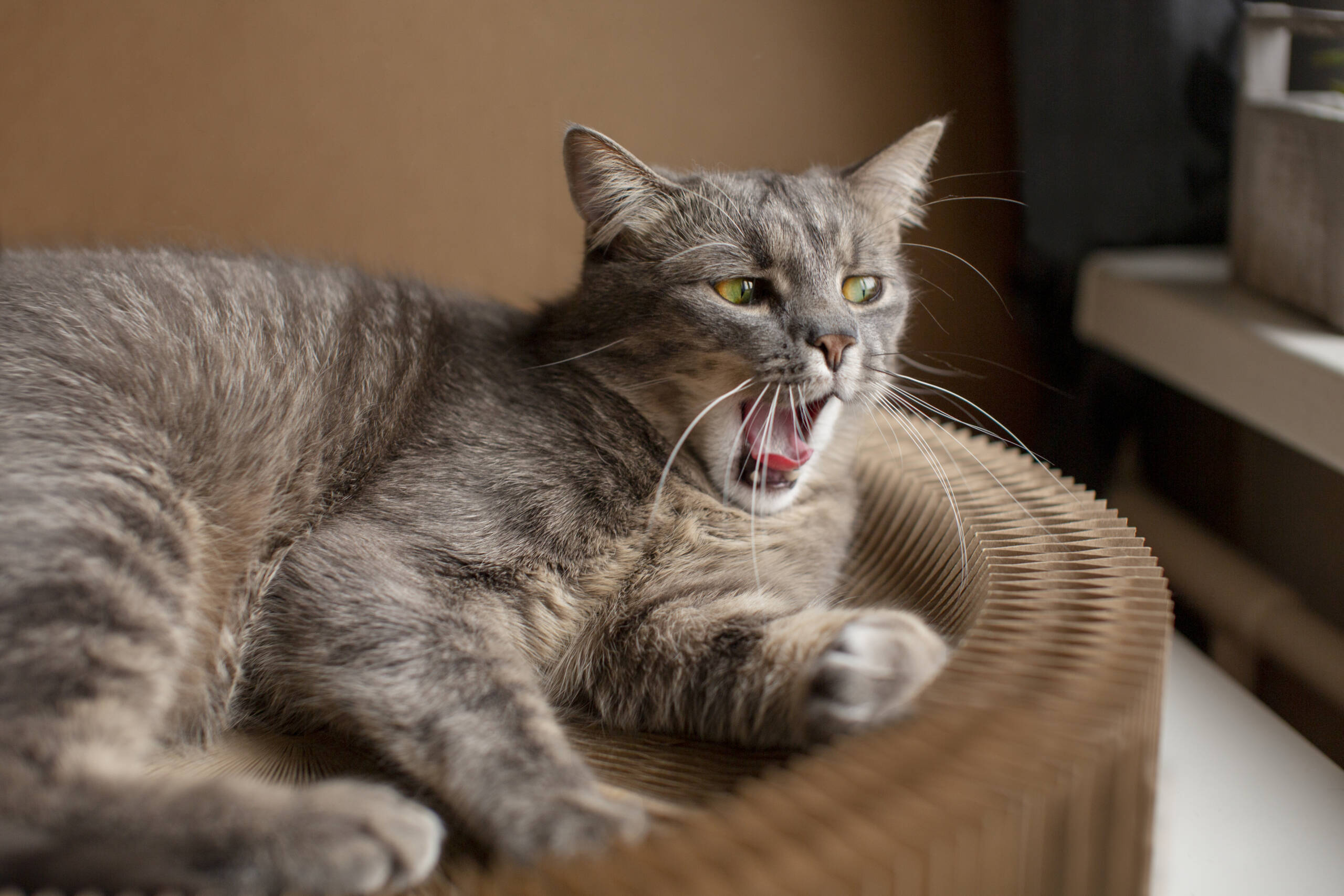
Why Is My Cat Coughing? Common Reasons Explained
As a cat owner, hearing your feline companion cough can be both alarming and confusing. Unlike dogs, cats don’t cough frequently, so when they do, it’s often a sign that something isn’t quite right. If you’ve found yourself wondering, “Why is my cat coughing?”, you’re not alone. In this blog, we’ll walk you through the most common causes of cat coughing, including when it’s tied to sneezing or wheezing, and help you decide when it’s time to consult a vet.
What Does Cat Coughing Look and Sound Like?
Coughing in cats can occasionally be confused for vomiting or hairball hacking. A real cough, on the other hand, is characterized by a powerful expiration, frequently with an open mouth, and may be accompanied by choking. The sound may be dry or wet, depending on the source.
Some pet owners describe episodes as their cat sneezing and coughing at the same time, or notice a wheezing cat that struggles with noisy breathing. Each of these signs can point to different underlying issues, which we’ll explore below.
1. Hairballs
One of the most common (and less serious) reasons a cat may appear to cough is the process of trying to expel a hairball. As cats groom themselves, they ingest fur that can accumulate in their digestive tract. If not passed through the stool, the body attempts to remove it by coughing or gagging.
What to watch for:
- Dry hacking sound
- Gagging or retching
- Occasional production of a hairball
If this happens only occasionally and your cat is otherwise healthy, it may not be a concern. However, frequent hairball-related coughing may require dietary changes or grooming adjustments.
2. Asthma and Allergies
Feline asthma is a leading cause of chronic coughing in cats and affects an estimated 1%–5% of cats, especially those living in indoor environments. Asthma in cats is caused by inflammation and narrowing of the airways, leading to coughing, wheezing, and sometimes labored breathing.
- Common symptoms include:
- Recurrent coughing fits
- Audible wheezing
- Difficulty breathing, especially during exercise
If your cat coughs and wheezes, especially with changes in weather or after being exposed to dust, fragrances, or smoking, asthma might be the cause. It’s important to consult a veterinarian for diagnosis, as untreated asthma can worsen over time.
3. Respiratory Infections
Cats, like people, can have upper respiratory infections. Viral or bacterial infections can cause symptoms that include cat’s sneezing and coughing, a runny nose, and eye discharge. These are especially common in multi-cat households or shelters.
Signs to look for:
- Sneezing followed by coughing
- Congested breathing or wheezing
- Decreased appetite and energy
Feline herpesvirus and calicivirus are frequent causes of respiratory infections in cats. While mild cases may resolve on their own, more serious infections may need antibiotics or antiviral medications.
4. Foreign Objects or Irritants
Sometimes a cat may inhale a foreign particle like dust, a blade of grass, or litter particles, triggering sudden coughing. These incidents usually involve acute, repetitive coughing that begins suddenly.
Possible indicators:
- Sudden onset of coughing
- Pawing at the mouth
- Possible wheezing or drooling
If the coughing persists or your cat is wheezing, it could indicate that the object hasn’t cleared. In such cases, prompt veterinary attention is advised.
5. Heartworm Disease
Although heartworm is less frequent in Canadian cats than in dogs, it remains a concern, particularly in locations near the United States border or in warmer provinces like British Columbia. Infected cats may show signs like coughing, difficulty breathing, and vomiting.
Symptoms of concern:
- Chronic coughing
- Lethargy
- Labored breathing or wheezing
There is no cure for heartworm in cats, so prevention through regular vet visits and parasite control is key.
-
Lung Parasites or Fungal Infections
Though rare, lungworms and certain fungal infections (like cryptococcus) can affect cats, particularly those that go outdoors. These infections can lead to persistent coughing, weight loss, and breathing problems.
Symptoms may include:
- Long-term coughing
- Poor body condition
- Coughing up mucus or blood in severe cases
Testing and early treatment are essential, as untreated infections can become life-threatening.
When Should You Worry About a Coughing Cat?
If you’re asking yourself, “Why is my cat coughing so much lately?”, and you notice any of the following, it’s time to call your vet:
- Coughing persists for more than a few days
- Your cat is also sneezing, wheezing, or struggling to breathe
- Loss of appetite or energy accompanies the cough
- There’s blood or mucus in the cough
- Your cat is very young, old, or has other health conditions
While an occasional cough may be nothing more than a minor irritant or hairball, persistent or severe coughing should never be ignored. Whether it’s asthma, infection, or a wheezing cat due to allergies, identifying the cause early helps ensure your feline friend gets the care they need.
Have you noticed changes in your cat’s behavior or breathing? Always consult your veterinarian if you’re unsure. It’s better to be cautious when it comes to your pet’s health.


